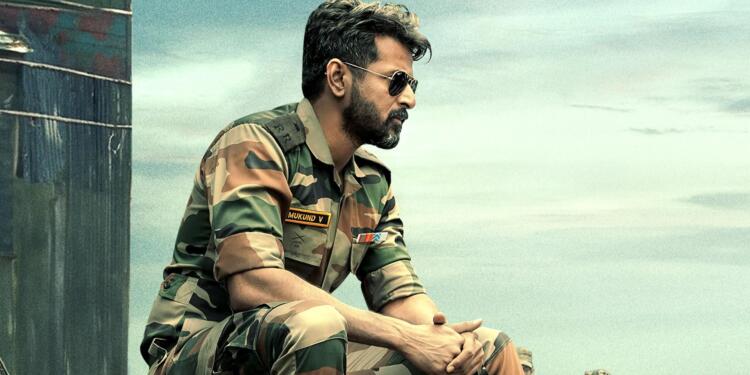Tamil Brahmin is a community that has served Mother India in the best possible way in all sectors be it intellectual or security. But unfortunately, their service to the nation and humanity has been met with the community suffering enormous persecution and discrimination. K. Annamalai a year ago in a podcast of ANI compared the Brahmin community living in Tamil Nadu to the Jews living during Nazi Germany. The Dravidian political parties have long portrayed Tamil Brahmins as villains for their vested political interest in Tamil Nadu. We can hear reports every day of some or other Dravidian politician abusing Tamil Brahmins in the worst possible way.
Recently a Tamil movie named Amaran based on the life of Major Mukund Varadarajan, a Tamil Brahmin and a practicing Hindu was released who sacrificed his life fighting Islamic terrorists in Kashmir in 2014. He was a brave soldier who was commissioned into the Army’s 44 Rashtriya Rifles from the Rajput Regiment and lost his life on the way to the hospital after being hit by three bullets in the process of neutralizing a Hizbul Mujahideen commander in Shopian district in April 2014. Major Varadarajan was posthumously awarded the Ashok Chakra for his bravery, marking the fourth such honor for the state. Directed by Rajkumar Palanisamy, the film highlights his heroism but its production and the portrayal of the character of Mukund Varadarajan have sparked heated debates.
The film is receiving major flaks over the portrayal of Major Varadarajan’s religious and cultural identity. While Major Varadarajan was a Tamil Brahmin and a practicing Hindu, the film brazenly downplays his Hindu background. Conversely, it highlights his wife Indu’s Christian faith, with depictions of a cross necklace and religious images in their home. This selective portrayal, in the garb of cinematic liberty, deliberately omits Varadarajan’s Hindu and Brahmin roots while accentuating his wife’s Christian identity.
The debate has extended beyond film critics and into public discourse. Ananthakrishnan Pakshirajan, a former IAS officer, voiced strong disapproval of the movie not showing Major Mukund as a Tamil Brahmin. He compared the condition of Tamil Brahmins in Tamil Nadu to Jews in the Nazi era where Brahmins have to face discrimination and the erasure of their cultural identity daily. His comments underscore a growing sentiment that Tamil Brahmins are marginalized in popular culture and political discourse in Tamil Nadu, a state with a long history of anti-Brahmin sentiment stemming from the Dravidian movement.
Facing massive backlash for the film’s in-your-face Dravidian propaganda, director Rajkumar Palanisamy defended it claiming that the film’s intention was to honor Major Varadarajan’s Tamil and Indian identity rather than focus on his caste or religious background. He claimed that the term “Naina,” used by Major Varadarajan to address his father, signifies a respectful Tamil identity rather than a religious one.
Against this backdrop, it becomes pertinent to note that controversial Dravidian leaders who are notorious for spewing hatred against Sanatan Dharma, Kamal Haasan, and Udhayanidhi Stalin, are associated with this film. The production house behind the film, Raaj Kamal Films International, is owned by Kamal Haasan, the movie actor notorious for his Hinduphobic stance. Additionally, the film’s distribution is handled by Red Giant Movies, a company owned by Udhayanidhi Stalin, the DMK youth-wing secretary and Deputy Chief Minister of Tamil Nadu. Son of Tamil Nadu CM MK Stalin, Udhayanidhi made an infamous vitriolic speech where he compared Sanatan Dharma with diseases like Dengue, Malaria and called for its “eradication”. He was later booked over Hate Crime against Sanatan Dharma.





















